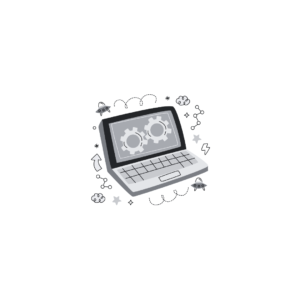Description
A Bachelor of Technology in Information Technology (B.Tech in IT) is an undergraduate degree program designed to equip students with the necessary skills and knowledge to excel in the field of information technology. This program covers various aspects of computing, networking, software development, and data management, preparing graduates for dynamic careers in the IT industry.
Curriculum Overview
The curriculum for a B.Tech in Information Technology typically includes core subjects in computer science, programming, networking, and specialized IT topics. Here are some common subjects and areas of study in this program:
Programming Fundamentals:
Introduction to programming languages (such as Python, Java, or C++) and software development methodologies.
Data Structures and Algorithms:
Study of data organization and management techniques, along with algorithm design and analysis for problem-solving.
Database Management Systems:
Fundamentals of database design, SQL, and data manipulation techniques to manage and retrieve data effectively.
Computer Networks:
Overview of networking concepts, protocols, and architectures, including network design and security mechanisms.
Software Engineering:
Principles and practices of software development lifecycle, including requirements analysis, design, testing, and maintenance.
Web Technologies:
Techniques for developing web applications, covering front-end (HTML, CSS, JavaScript) and back-end technologies (such as PHP, Node.js).
Operating Systems:
Study of operating system concepts, resource management, process scheduling, and system calls.
Mobile Application Development:
Introduction to developing applications for mobile platforms, focusing on user experience and platform-specific features.
Information Security:
Principles of cybersecurity, encryption methods, and strategies to protect systems and data from threats.
Cloud Computing:
Overview of cloud services, architectures, and deployment models, along with their implications for businesses.
Machine Learning and Artificial Intelligence:
Fundamentals of machine learning algorithms and their applications in data analysis and automation.
Human-Computer Interaction:
Study of design principles for user interfaces and improving user experience in software applications.
Project Management:
Skills and knowledge for managing IT projects, including planning, execution, and monitoring.
Project Work/Internship:
Practical experience through projects or internships in IT companies, allowing students to apply their skills in real-world environments.
Career Opportunities
Graduates with a B.Tech in Information Technology have diverse career opportunities in various sectors, including information technology, software development, consulting, and network administration. Some potential job roles include:
Software Developer/Engineer: Designing, coding, testing, and maintaining software applications.
Web Developer: Creating and managing websites and web applications with a focus on both front-end and back-end development.
Database Administrator: Managing and maintaining databases, ensuring data integrity, security, and accessibility.
Network Administrator: Overseeing and maintaining computer networks, ensuring connectivity and security.
Systems Analyst: Analyzing and improving IT systems and processes to meet business requirements.
Cybersecurity Analyst: Protecting systems and networks from cyber threats, implementing security measures, and conducting audits.
Data Scientist/Analyst: Analyzing and interpreting complex data to help organizations make informed decisions.
IT Consultant: Advising organizations on technology strategies, system implementations, and best practices.
Cloud Solutions Architect: Designing and managing cloud infrastructure and services for businesses.
Technical Support Engineer: Providing assistance and troubleshooting for computer systems and software applications.
Further Education
Graduates may choose to pursue a Master?s degree in Information Technology, Computer Science, Data Science, or related fields for further specialization. Additional certifications in specific areas (such as cybersecurity, cloud computing, or data analytics) can enhance job prospects and career advancement.
If you have any further questions about the curriculum, potential career paths, or other aspects of a Bachelor of Technology in Information Technology, feel free to ask!









